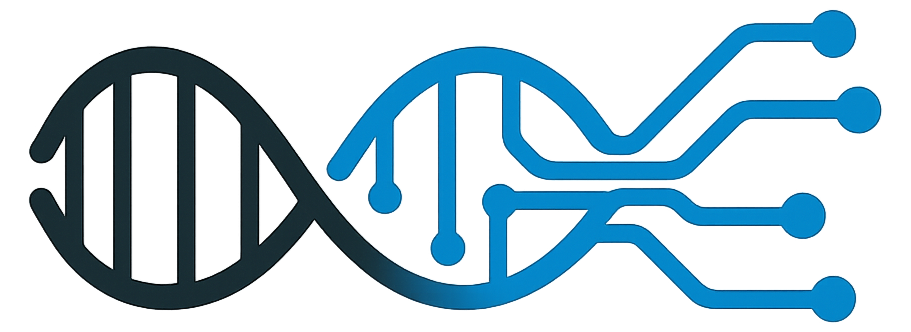🪅When Captain Kirk Meets the Cosmos: Shatner & Tyson Crash the Universe Party
If the universe ever threw a dinner party, William Shatner and Neil deGrasse Tyson would absolutely be seated next to each other—Shatner clutching a glass of red, musing about mortality, while Tyson diagrams dark matter on a napkin using salt and soy sauce.
That’s the vibe of their extended interview. It's not so much a conversation as it is a philosophical tennis match, with each man lobbing cosmic wonder and existential zingers back and forth. And somehow, amidst the galaxies, mortality, and Pluto’s public image crisis, you laugh.
Shatner the Seeker, Tyson the Torchbearer
William Shatner (age 94, by the way) isn't just the man who played Captain Kirk—he’s also flown into actual space aboard Jeff Bezos’ Blue Origin rocket. And yet, he talks about space not like a conqueror, but like a guy who peeked behind the curtain of the universe and came back weepy.
In his words:
“It wasn’t the adventure of going to space. It was the mourning of Earth.”
(Shatner, reflecting on the void he saw from orbit)
Tyson, meanwhile, balances Shatner’s poetic melancholy with the calm enthusiasm of a man who knows that if space is cold and indifferent, it’s also beautiful in its indifference. Asked what happened before the Big Bang, he shrugs:
“We don’t know what happened before the Big Bang. And that’s okay.”
(Tyson, channeling his inner cosmological stoic)
They’re two flavors of cosmic curiosity: Shatner, emotionally raw and seeking meaning; Tyson, cheerfully surfing the event horizon of knowledge.
Exploration Is a One-Way Street
Shatner says he wouldn’t go back to space again. Once was enough. Not because it was scary—but because it was profound. Like a great novel, you don’t need to re-read it to know it changed you.
“You’re looking into the blackness of space, and then you look down and there’s this jewel. This warm, nurturing jewel… and we’re killing it.”
(Shatner, basically giving Earth the world’s most heartfelt Yelp review)
Tyson nods, not to mourn, but to pivot to perspective. He brings out a recurring theme: the power of science to reframe human problems. We're small, yes. But we're aware of being small. That’s not a bug—it’s a feature.
Comedy, Ice, and the Death of Pluto
When asked for a “soundbite” about the universe, Tyson doesn’t hesitate:
“Pluto is mostly ice. If it were where Earth is right now, it would grow a tail. And that is no kind of behavior for a planet.”
(Tyson, roasting Pluto with astrophysical sass)
This isn’t just science—it’s a late-night talk show hosted by the cosmos.
And speaking of sass: Shatner recalls his early acting days “going from fetid bed to fetid bed,” prompting Tyson to pause and ask, “Do you know what ‘fetid’ means?”
It’s a moment so delightfully nerdy it deserves its own sitcom.
Mysticism Without the Woo
What’s beautiful about their exchange is that both men are genuinely awestruck—just in different dialects.
Shatner refers to Tyson’s explanations as a kind of modern mysticism. Tyson accepts the label, but clarifies: it’s not mysticism because it’s unknowable—it’s because it hasn’t been known yet.
“Science is not there to make you feel good. It’s there to tell you the truth.”
(Tyson, Science Dad energy at full power)
They both acknowledge the limits of understanding, but they walk up to those limits with different tools: Tyson with a telescope and calculus, Shatner with a sonnet and a sigh.
Mortality, Stardust, and the Final Frontier
There’s a quiet undercurrent running through it all: Shatner’s age. At 94, he’s very aware of the finite nature of life. But he’s also vividly alive—asking, wondering, reliving, emoting. Tyson reminds us that the atoms in our bodies were forged in stars. We are the universe, experiencing itself.
“We are not in the universe. We are the universe.”
(Tyson, casually blowing minds like it’s a party trick)
Shatner nods, perhaps thinking of his own stardust, slowly returning to the cosmos.
So What’s the Takeaway?
If you’ve ever looked up at the night sky and felt like both an ant and a god, this conversation is your comfort food.
It shows us that you can be 94 and still be humbled by the stars. You can be a scientist and still admit you don’t know. And you can roast Pluto and still love it.
It reminds us that wonder isn’t a luxury—it’s part of being human. As is laughing at the absurdity of trying to explain the universe using a metaphor involving ice balls with tails.
Final Thought
This wasn’t just a conversation. It was a cosmic duet—Kirk and the Astrophysicist—two explorers, charting meaning at the edge of knowledge.
And if you ever find yourself overwhelmed by space, time, or your laundry pile, just remember what Tyson said:
“The universe is under no obligation to make sense to you.”
But that doesn’t mean you can’t enjoy trying.

